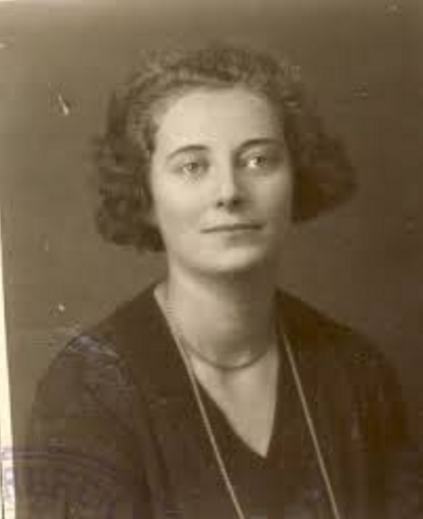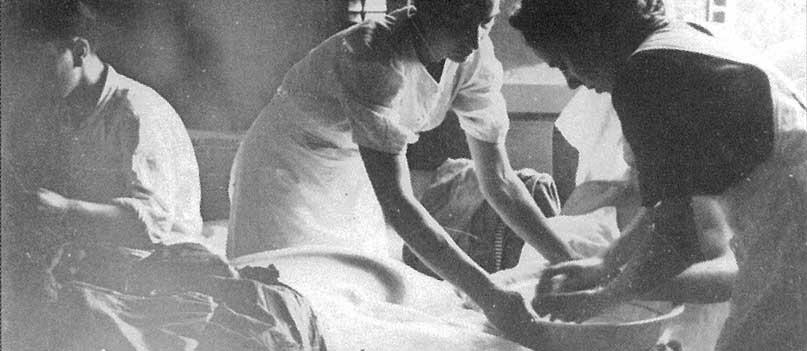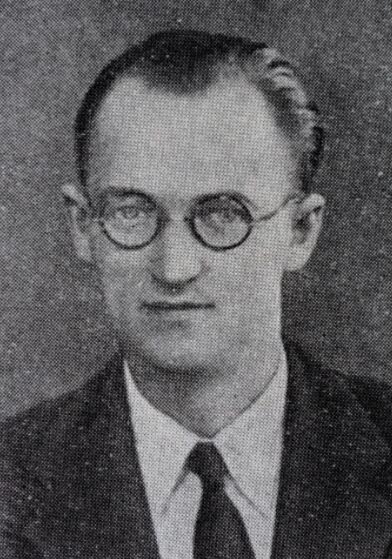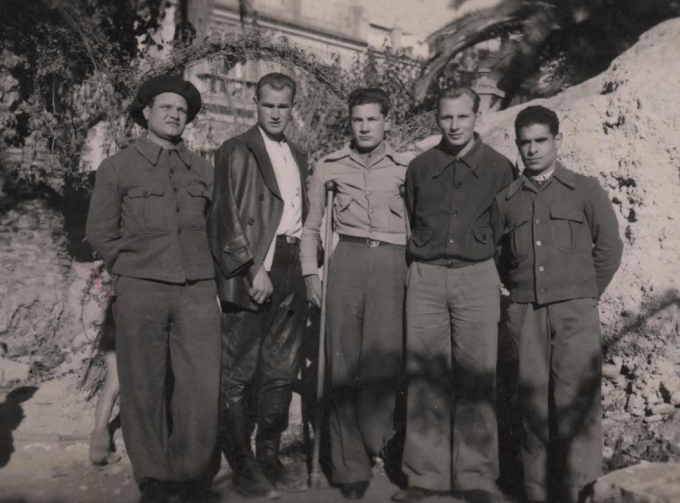Nowadays it becomes evident that the feat of the International Brigades has been aim of certain degree of mystification, distorting surely their genuine social picture. Of course, it is a difficult task for the historian to make a general outline of the -approximately- 35.000 volunteers from 54 countries (out of the 56 independent and recognized countries within the League of Nations in 1936). But it is possible to point out some general characteristics and features about their socio-political roots: they were men and women from different races, social classes, religious beliefs and political convictions who considered Spain as the first open battlefield again International Fascism.
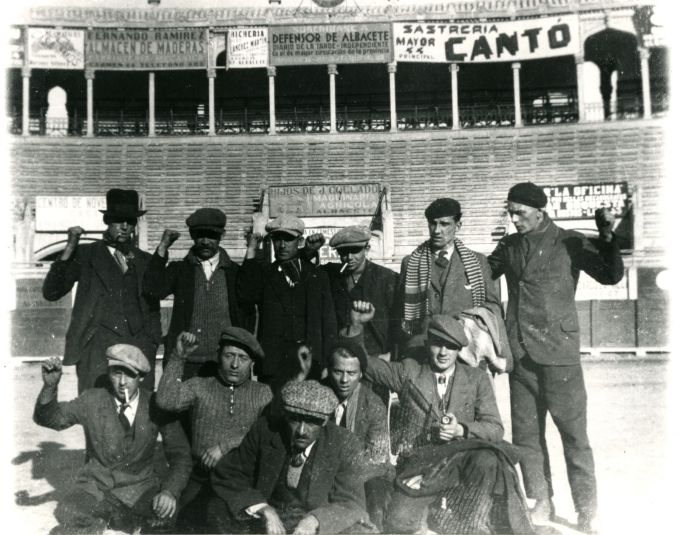
Group of Polish miners from the mines of northern France. Albacete Bullring, 1936 / Archives of the University of Salford Manchester
Before getting started analyzing the Latvian volunteers, let’s summarize some of their basic features and characteristics:
- Both Latvian men and women (Servicio Sanitario Internacional) participated in the IB
- Mostly labour workers (about 80%)
- Average age at the moment of enrollment: 28 years old. (Born in 1905-1915)
- Specially from industrial areas (Riga, Daugavpils, Liepāja)
- They raised-up in a traumatized society (WW1)
- Minority of highly educated volunteers (engineers, doctors, nurses)
- Many of them were already military trained within the Latvian Army
- Few WW1 veterans and Russian Civil War veterans
- They were a multi-ethnic group (Latvians, Jewish, Slavs)
- Large Communist affiliation among them (under Soviet trend)
- Notorious political activism prior Spanish Civil War
- Multilingual skills
Continue reading →



